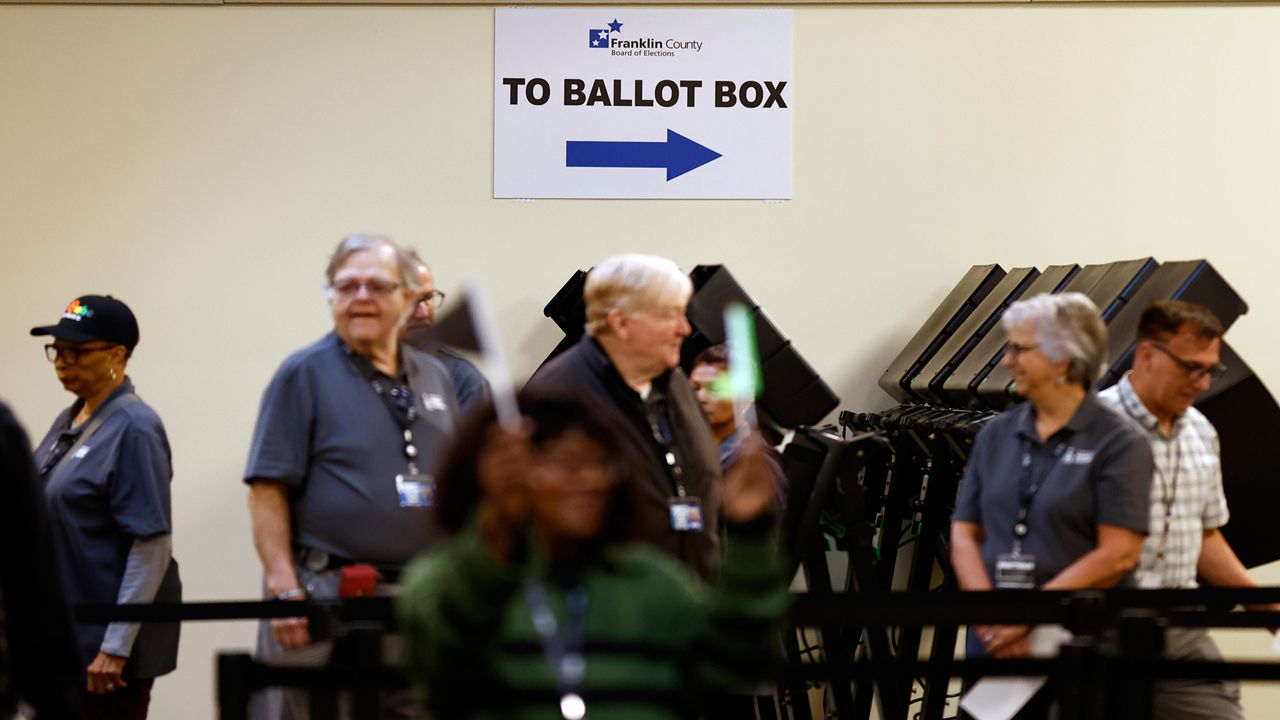OHIO – A Baldwin Wallace University poll shows many Ohio voters feel like elected officials don’t represent them.
The poll surveyed 877 registered voters across Ohio from Sept. 30 to Oct. 1.
Across the board, all elected leaders were given negative net ratings when respondents had to say whether they were doing an excellent, good, fair or poor job representing their views.
“Although Ohio’s political leadership is leveraging conservative, wedge issues like illegal immigration and transgender rights in political advertising this election cycle, the Ohio electorate is more progressive on many other issues like education, gun restrictions and abortion,” said Lauren Copeland, director of the CRI, in a release.
The poll also highlighted differences between the issues Ohio voters care about and the decisions made by elected officials.
Similar to the Bowling Green State University poll released in late September, inflation and the economy were the most pressing issues for voters. However, when it came to other issues like gun control and abortion, that’s where voters differ with their elected officials.
Key findings include:
- More than 80% of Ohio voters surveyed support teaching the history of race and racism in the U.S., and 60% support teaching sexual orientation in middle and high schools
- 86% favored background checks for guns for ages 18 to 21, and 75% support raising the minimum age to buy an AR-15-style rifle.
- 56% said abortion should “generally be permitted with some limitations.” Last year, 56.8% of Ohioans voted in favor of Issue 1 last year, which enshrined reproductive rights into the state constitution.
- More than 65% of voters said they believe people are partially responsible for climate change.
However, Ohio voters did align with conservative stances on a few issues.
For one, many Ohio voters don’t want protections for transgender rights. The poll shows nearly three quarters of voters don’t want transgender athletes to play on teams that match their gender identity. Additionally, they oppose minors receiving medical care for gender transition treatment.
When it comes to immigration, opinions are mixed. Voters were divided on whether to require undocumented immigrants to leave the country, and over half believe those who aren’t in the U.S. legally don’t contribute to the economy. The poll also found 58% of voters feel immigrants pose a threat to public safety.
Despite that, 60% of voters agree with Gov. Mike DeWine to pushback on the recent false claims about Haitian immigrants in Springfield, Ohio.
“The response to DeWine’s editorial shows that Ohioans are capable of bipartisan consensus on immigration when the message is one of empathy and humanity,” said Copeland in a release. “It’s a hopeful sign that voters across the board recognize the damage divisive rhetoric can cause and are willing to support a more humane approach.”



